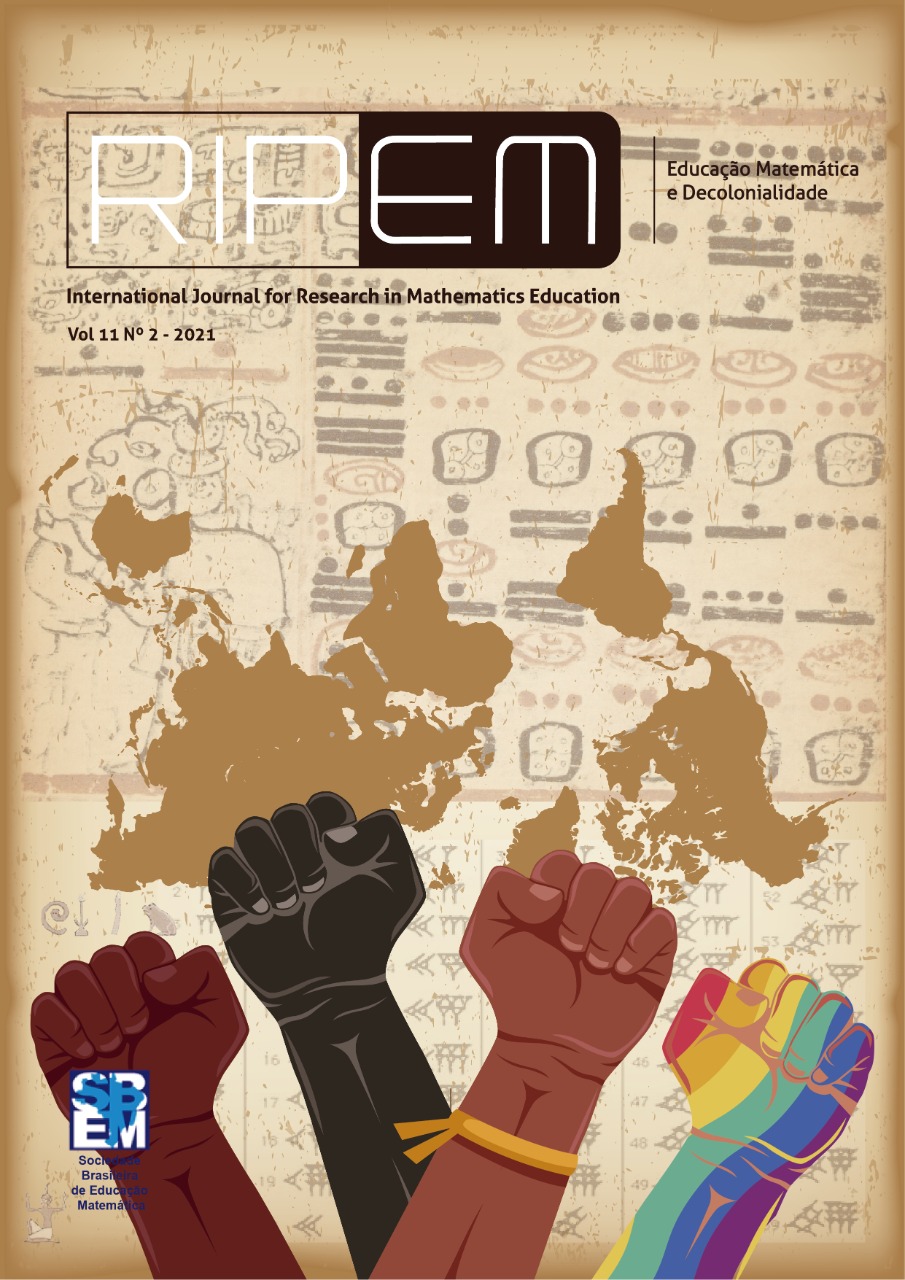Illiteracy, research and Education (Mathematics): a school that works outside the school walls
DOI:
https://doi.org/10.37001/ripem.v11i2.2547Keywords:
School, Decoloniality, Illiteracy, Research, NarrativesAbstract
This article points to discussions arising from a master's research in Mathematics Education that was structuredbeyond the problematization ofdaily mathematical strategies of illiterate adults, through the search to speak with the interviewees, giving rise to other questions that mark the role of school and a school-educational discourse in the narrative constitution of these subjects. In this direction, this text aligned studies on decoloniality with an investigative stance crossed by powerful narratives about how a body positioned outside the school brings deep grooves that (de)limit ways of life. Practices of exclusion, abandonment, abuse of power, self-judgment through an external reference to that way of life and self-construction due to lack are some of the factors that make up the narrative constructions mobilized here. This text also operates a process of constituting a body-researcher that tries to be sensitized to what happens during an investigative process and that resists an academic movement that forces an attempt to colonize decoloniality.
Downloads
References
Couto, M. (2011). E se Obama fosse africano? São Paulo, SP: Companhia das Letras.
Freire, M. (2005). Contos Negreiros. Record.
Giraldo, V., &Fernandes, F. S. (2019). Caravelas à Vista: Giros Decoloniais e Caminhos de Resistência na Formação de Professoras e Professores que Ensinam Matemática.Perspectivas da Educação Matemática, 12(30), 467-501.
Grosfoguel, R. (2009). Para descolonizar os estudos de economÃa polÃtica e os estudospós-coloniais: transmodernidade, pensamento de frontera e colonialidade global. In B. S. Santos&M. P. Meneses. (Orgs.).Epistemologias do Sul (pp. 383-417). Coimbra: Edições Almedina SA.
Lugones, M. (2008). Colonialidad y Género.Tábula Rasa, 9, 73-101.
Mignolo, W. (2017). Desafios decoloniais hoje.Epistemologias do Sul, 1(1), 12-32.
Oliveira, R. P. (2016). Performances da escrita na narrativa contemporânea: a voz do outro em “Totonhaâ€, de Marcelino Freire.Letras de Hoje, 51(4), 475-481.
Ribetto, A., &Dias, R. O. (2020). MicropolÃtica e uma aposta ética, estética e polÃtica de formar professores pela invenção.Revista Educação e Cultura Contemporânea, 17(47), 209-229.
Santos, B. S. (2009). Para além do pensamento abissal: das linhas globais a uma ecologia de saberes. In B. S. Santos&M. P. Meneses (Orgs.). Epistemologias do Sul (pp. 23-71). Coimbra: Edições Almedina SA.
Santos, B. S. (2019). O fim do império cognitivo: a afirmação das epistemologÃas do Sul.Autêntica Editora.
Soares, E. L. (2019) Educação (,) matemática e outras banalidades fundamentais da vida: diálogos a partir dos analfabetismos nossos de cada dia. [Dissertação de mestrado, Universidade Federal de Mato Grosso do Sul]. Campo Grande.
Spivak, G. C. (2010) Pode o subalterno falar? Editora UFMG.
Published
How to Cite
Issue
Section

This work is licensed under a Creative Commons Attribution-NonCommercial-NoDerivatives 4.0 International License.








